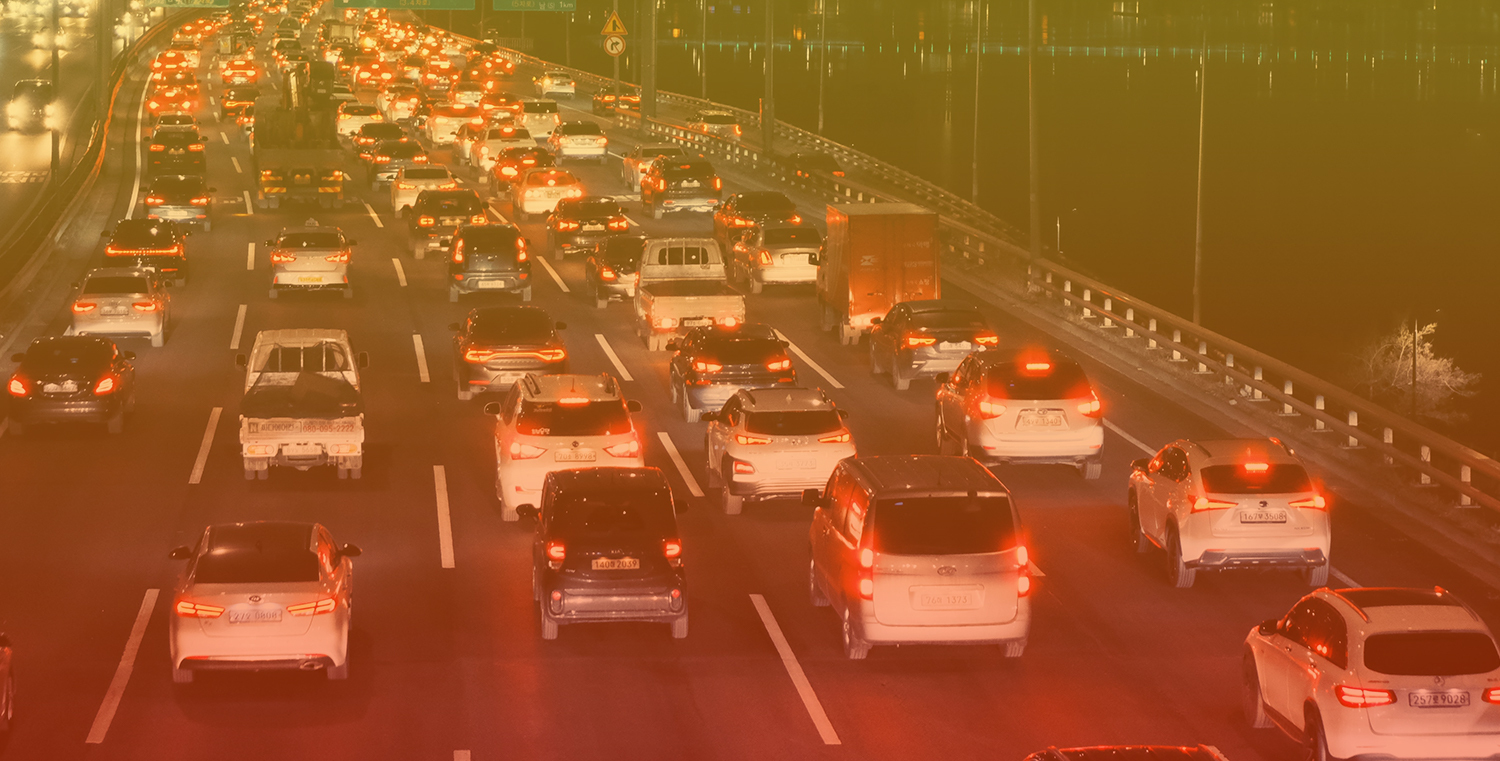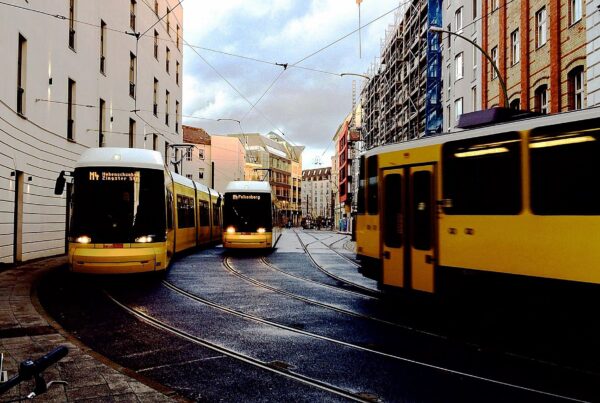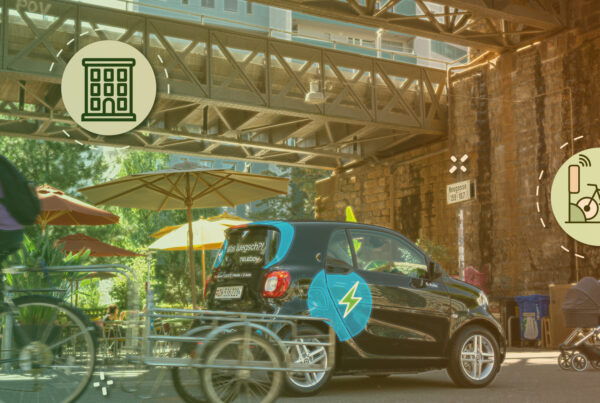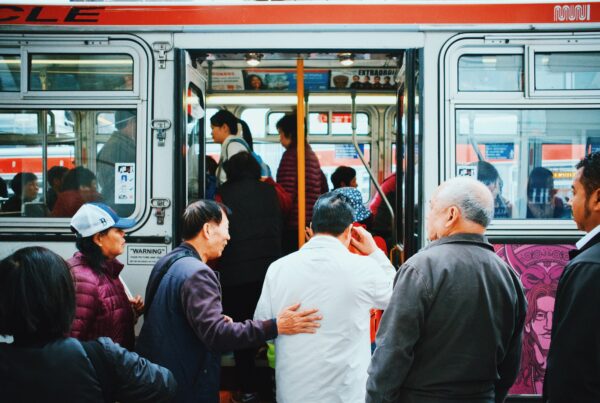The Mobility Hub
Your weekly guide to the latest in shared mobility
SUMC News and Announcements
“CODE RED FOR HUMANITY” demands more from our government—and from us
The last time the US passed a sizable infrastructure bill was in 1956 with the Federal-Aid Highway Act. Heavily touted by President Eisenhower, the bill created a 41,000-mile “National System of Interstate and Defense Highways” that would, according to Eisenhower, eliminate unsafe roads, inefficient routes, traffic jams, and all of the other things that got in the way of “speedy, safe transcontinental travel.”
It was inequitable and unsustainable then, and it is inequitable and unsustainable now. In the 70 years since the Act, highways have ripped apart Black communities and made carbon emissions from gas-powered vehicles the #1 source of greenhouse gas emissions in the nation. Highways were run through urban communities already decimated by redlining, exclusionary suburbs were enabled, and car dependency was born. Climate change was created by these patterns. The climate change battle is being lost, with low-income communities and people of color facing the greatest risks from pollution and climate change.
The Curbside Inventory Report provides an in-depth technical study on curbside activity and performance measurement.The GIS-based Curbside Management Tool contains quality curb asset data on curbside management, inventory, and allocation.
The Eno Center for Transportation, a non-partisan DC think-tank that invites you to think about multimodal transportation issues, turns 100 this year. (And they don’t look a day over 75). We’re excited to share two new initiatives.
The Martin Wachs Memorial Centennial Essay Contest gives students and professionals the chance to get published in Eno Transportation Weekly, win a total of $12,000 in cash prizes—and polish your reputation as expert, which is pretty priceless.
We’re also excited about Eno’s Centennial Institute, a virtual conference held on September 15, 16, 22, and 23. You’ll walk away with useful info and a rich network of peers, plus you can claim AICP credits.

Mobility Justice
The amount of money and time EVs require (even after promised rebates and incentives) puts them out of reach of many low-income folks, and as we know, they’re not going to fix the climate crisis alone. (They’ll add to transportation inequity though.)
Brooklyn has the possibility to be net positive for racial equity with a Gowanus rezoning proposal that would counter the local exclusionary development trend with affordable housing options and economic development—but workforce training is key to the making newly created jobs accessible to everyone.
The Seattle Department of Transportation (SDOT) is taking steps to increase active transportation access for BIPOC youth via a partnership with East African Community Services and micromobility tech outfit Superpedestrian to give away 100 of the company’s bikes, with SDOT outfitting them with helmets, locks and lights.

Ridehailing/Carsharing/Carpooling
Lyft has a new way for frequent users to save (and compete with Uber Pass?) via a $199 annual membership that comes with a 15% discount on rides, 3 free 30-minute e-scooter or e-bike rides every month, and free unlimited 45-minute rides on classic bikes.
Karshare, a community-based, peer-to-peer carsharing startup based in London, has secured a cool €3.54 million to expand in cities and launch in new ones including Birmingham, Leeds, and Edinburgh—and they replace 24 solo cars with every shared vehicle.
Being a Blue Tesla driver is no gig, as 34 of Revel’s new electric rideshare Teslas hit Manhattan streets on August 2, driven by paid employees with benefits.

Bikesharing & Micromobility
34th Ave in Queens was a model of what open streets could be, and what issues might arise in terms of travel patterns and goods delivery—but there’s no tug-of-war in the Meatpacking District, where open streets are now permanent.
Chicago’s West Side is showing how change can be made when the community and the city work together. The Belmont Cragin and Hermosa neighborhoods are seeing a new grid of bike routes being installed as part of the Chicago Works Capital Plan, with new Divvy bikes coming as well.
Glasgow residents are going green on the new OVO Bikes Green Route that showcases sustainable stops from thrift stores to restaurants—just look for the green OVO logo in the window for planet-friendly shopping and transportation.

Transit
A “new” Mobility Hub in the Minneapolis suburb Maple Grove is actually a remodeled a 20-year old transit station with dedicated lanes for ridehailing and local transit, electric charging stations, and space for bike, e-scooter, and carsharing.
Despite pushback from Commissioner Pat Kemp, BRT is finally headed to Tampa Bay, with the Tampa Bay Area Regional Transit Authority approving a rapid bus system with nine bus stations, dedicated highway lanes, express lanes and regular lanes with shared motorists—but it won’t be here until the not-so-rapid 2030.
South Austin is getting more mobility options with on-demand bus service coming to South Menchaca as part of Capital Metro’s Project Connect, which aims to link communities and public transportation. New Pickup zones were introduced on August 6, so don’t wait to hop on a bus!

Technology
ReNika Moore, Director of the ACLU’s Racial Justice Program, has a message for Biden’s AI Research Task Force: When AI systems are developed without taking existing prejudices into account, built-in algorithmic bias can “exacerbate existing disparities and create new roadblocks for already-marginalized groups.” AKA: Make it worse.
The Federal Communications Commission decision to repurpose 45 megahertz of the 75 previously allocated to transportation safety while enforcing the use of LTE cellular technology, limits connected vehicle apps from communicating with each other and the environment. Kind of necessary for safety.
‘Rain or shine’ is not a typical mantra for autonomous vehicle development but new research out of Scotland’s Heriot-Watt University-led Radiate project wants that to change with a new dataset that includes adverse weather condition data points so AVs won’t take rainchecks or snowdays.

Sustainability
In not shocking but still terrifying news: humans have caused climate change and we have even less time than scientists thought to slash our carbon emissions. It’s a big task, but let’s start with using shared and micro-mobility options—without relying on electric cars (or any type of cars for that matter).
In more positive news: the Portland organization Depave is working towards a greener future by collaborating with community members and looking at Portland’s past to make decisions on depaving the city and how to best use its resources. (They’re looking to grow in the U.S., Canada and UK too.)
An overnight parking ban in a Chicago neighborhood has made the street quieter and calmer for residents. Now let’s imagine what the country could look like if we had less parking and car-centered planning.
Project Funding Opportunities
ITNAmerica (also an IMI grantee)
Westbrook, ME
Deadline: August 23
Email [email protected]
The Delaware Transit Corporation (DTC)
Deadline: September 10
Email [email protected] for the RFI package
Central Florida Regional Transportation Authority (Lynx)
Orlando, FL
Deadline: September 10
Zoom for Details: August 18 at 8 PM ET





